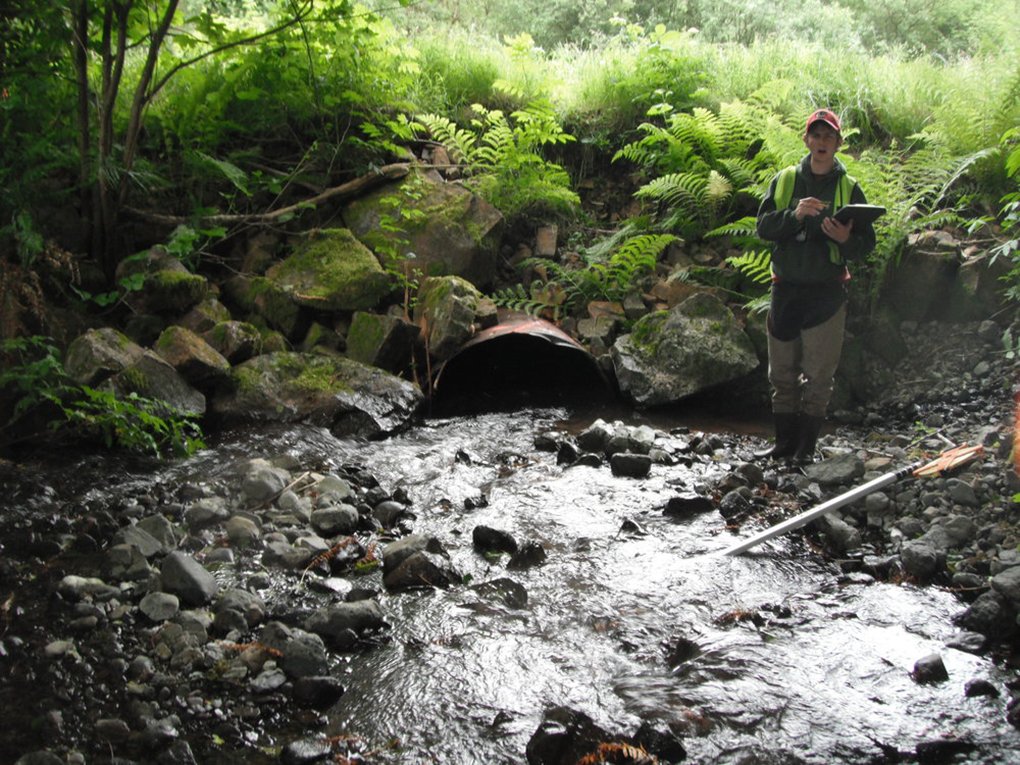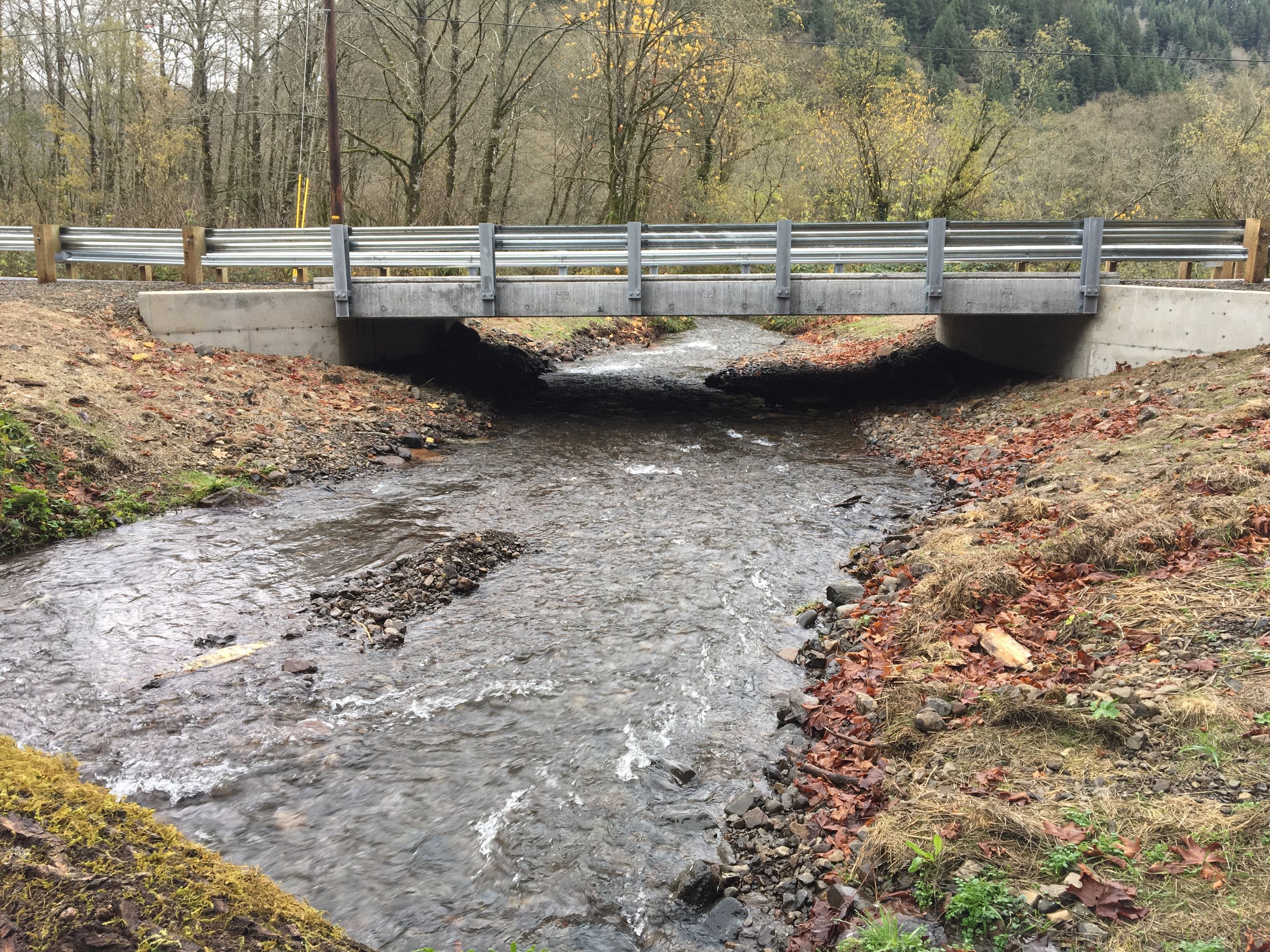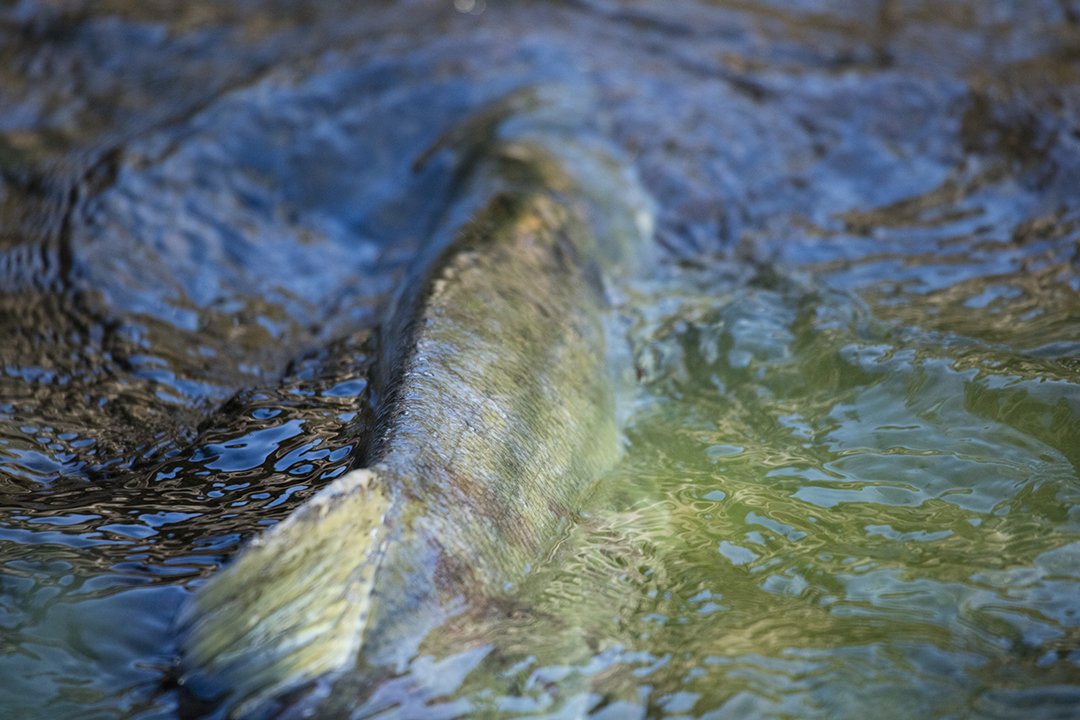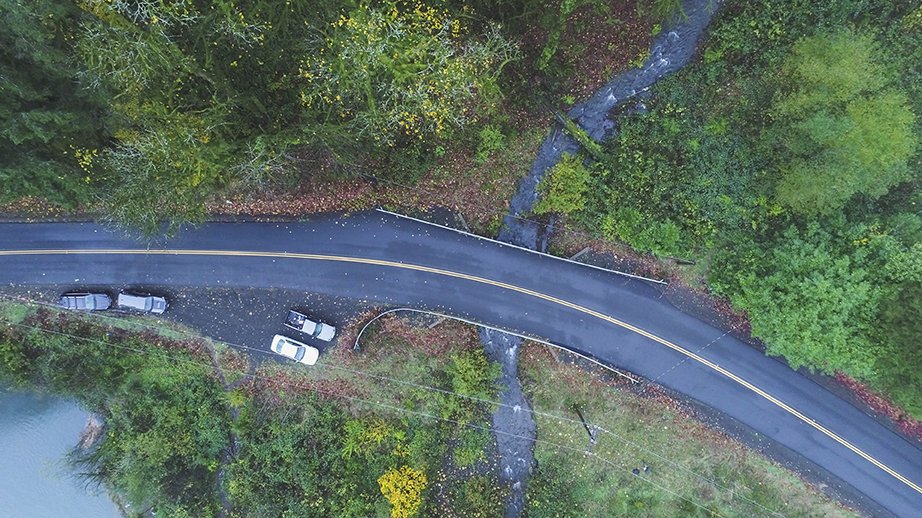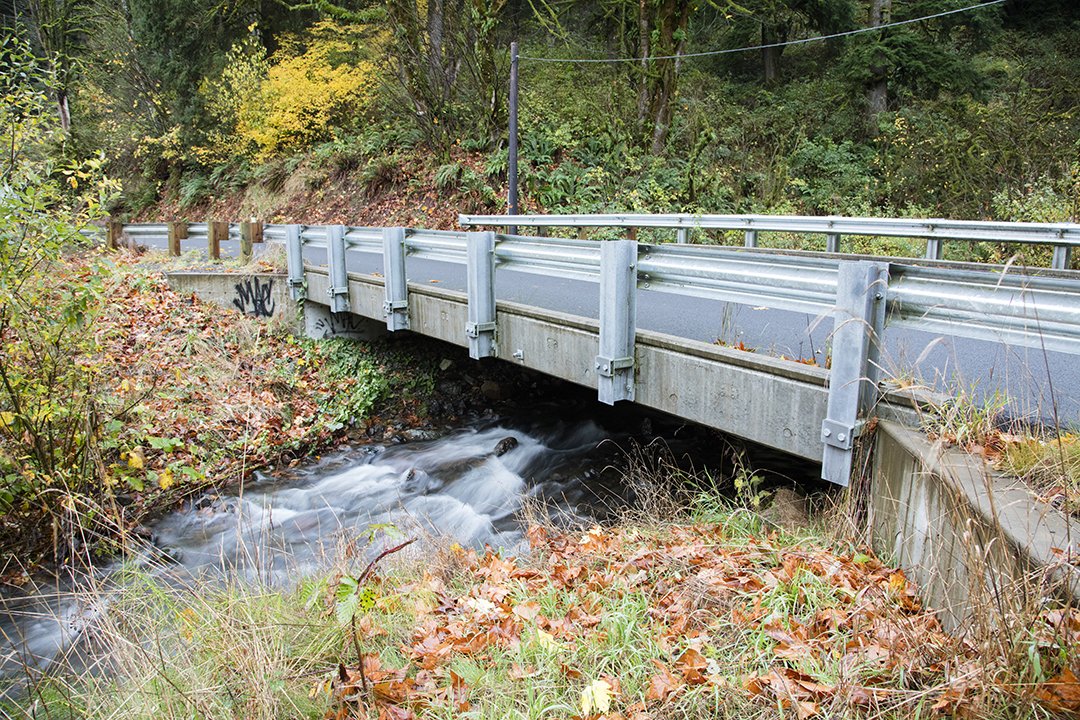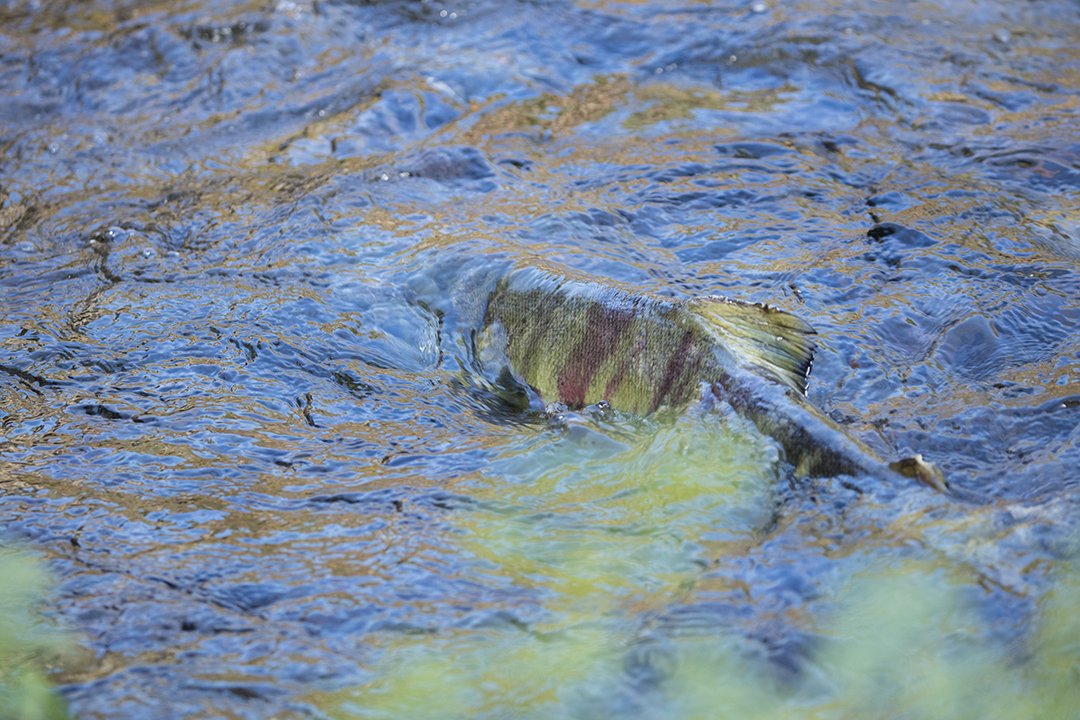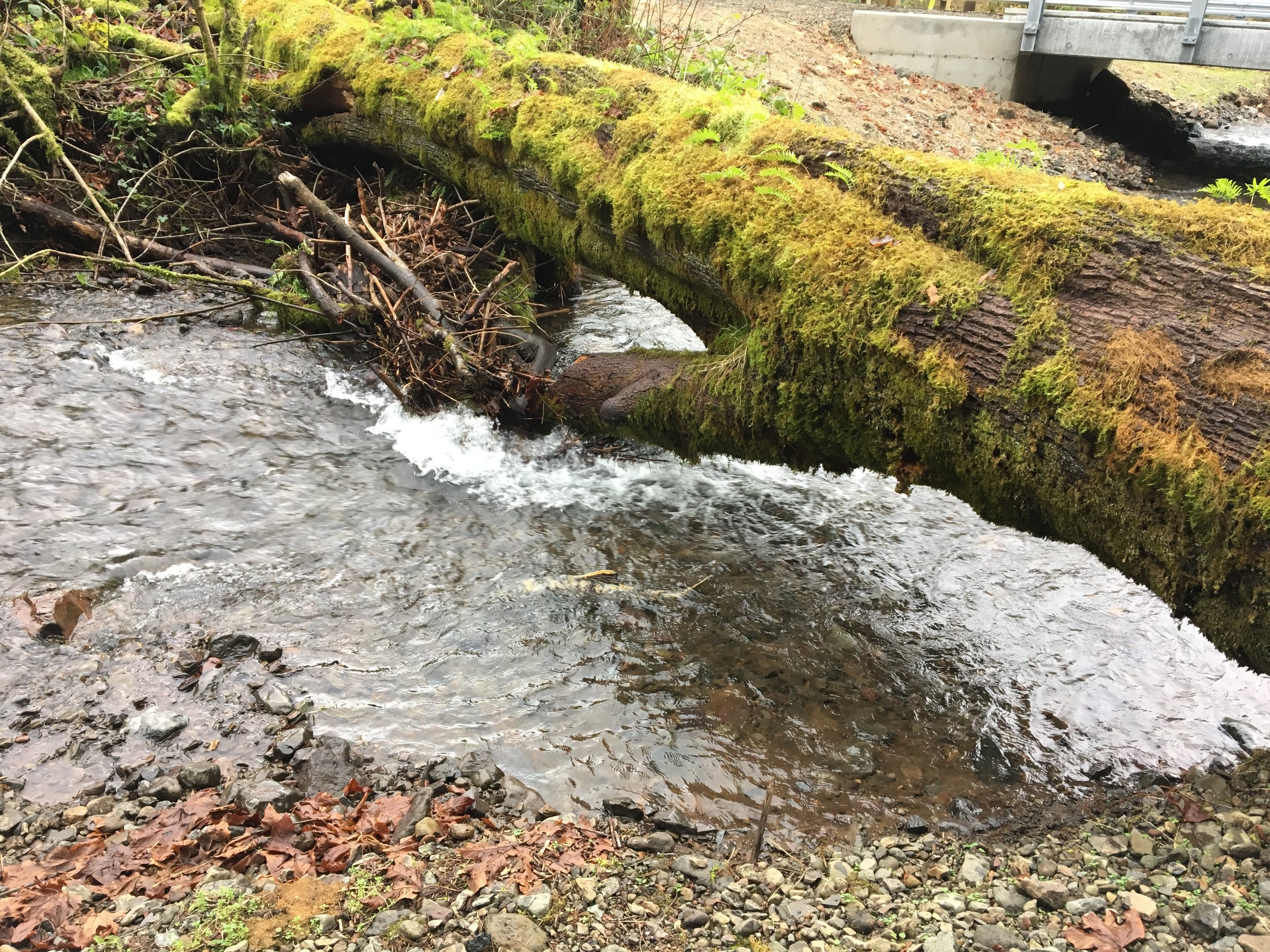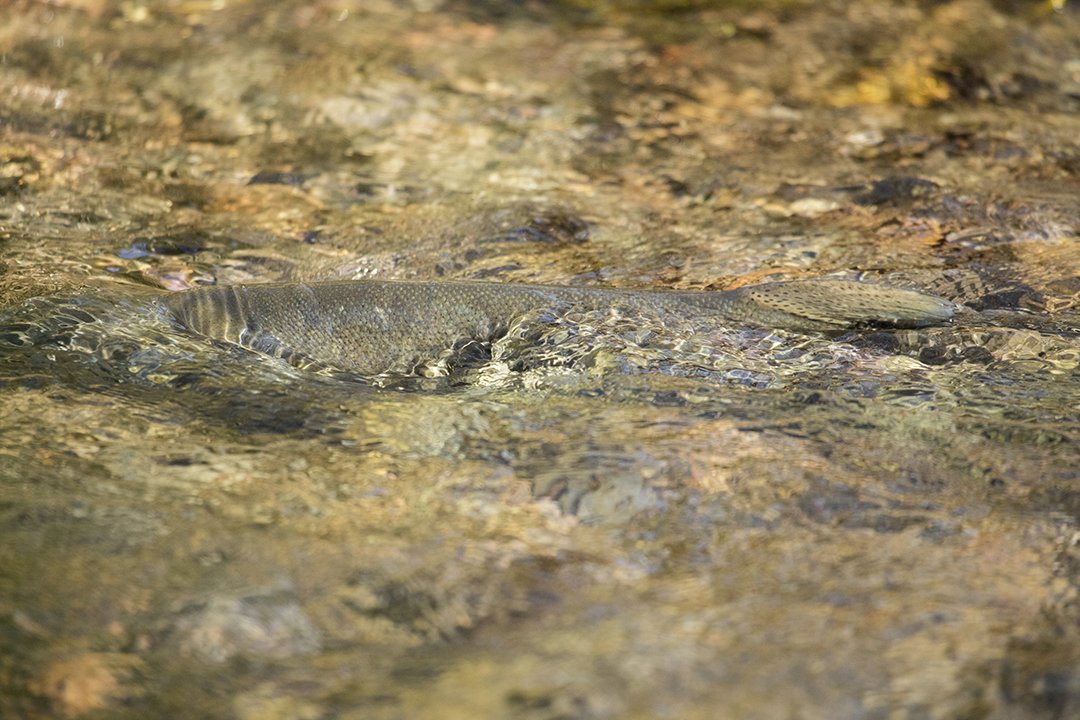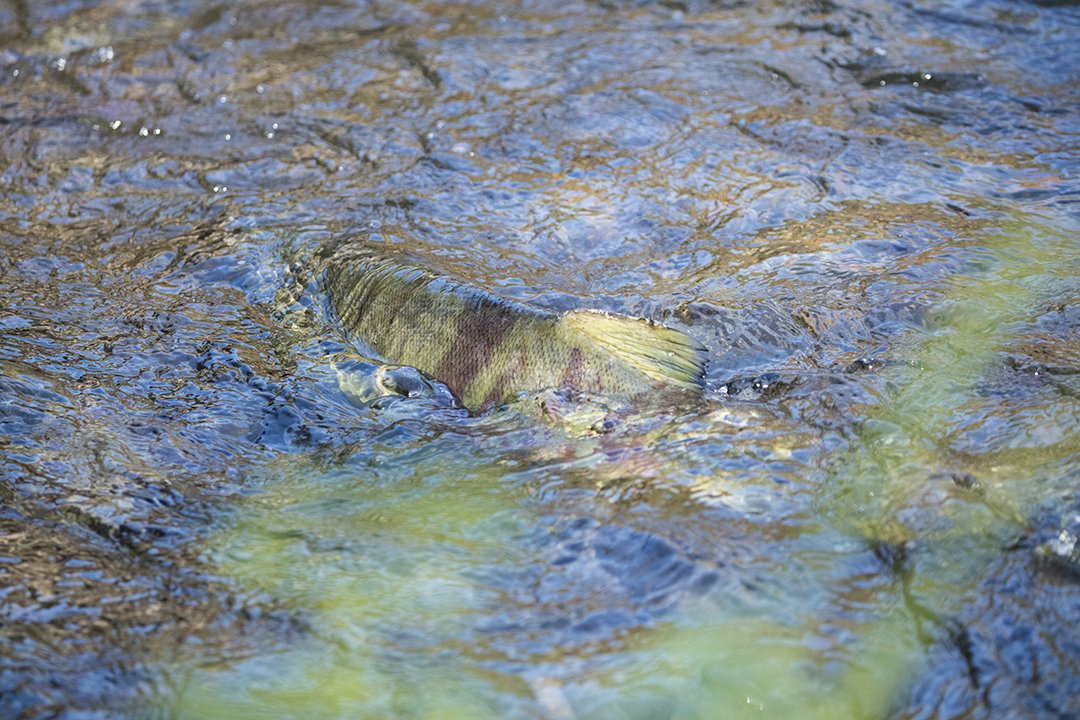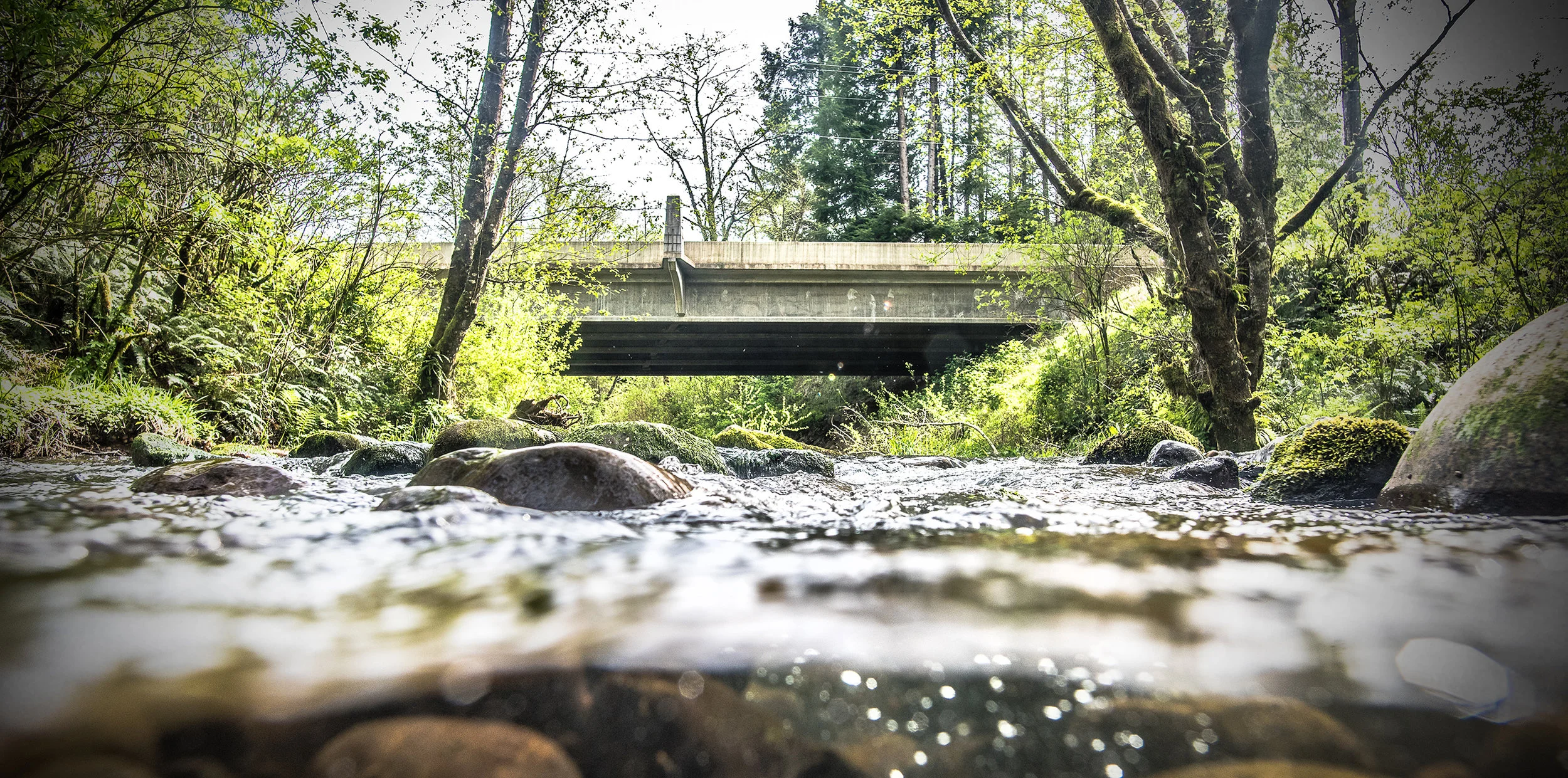Mapes Creek highlights
The completed bridge over Mapes Creek.
“In partnership with
local watershed councils, USFWS, USFS, TU and others, the program brings otherwise unavailable technical and administrative support to the County’s most critical challenges.
”
Project oVerview
Started: 7/17 Completed: 10/17
This project replaced an undersized and failing culvert located approximately 150 ft. upstream of Mapes Creek's confluence with the Kilchis River with a 32 ft. bridge. The 4.5 ft. culvert, located where Kilchis River Road crosses Mapes Creek, a tributary of the Kilchis River, was undersized and approximately 60 percent filled with streambed materials. As a result, it adversely affected aquatic organism passage, including blocking or impeding passage of adult and juvenile salmonids to approximately 0.7 miles of upstream habitats, and stream processes, including transport of stream bed material and organic matter. In addition, the culvert required an inordinate level of inspection and maintenance to avoid plugging and breaching. Thus, it posed a serious risk to human health and safety as well as to downstream water and habitat quality and the survival of aquatic organisms.
Completed Solution
The new 32 ft. bridge is ~1.5 times as wide as Mapes Creek's active channel and the constructed streambed matched the gradient and substrate of the natural streambed upstream of the crossing. As a result, the new bridge will provide unimpeded passage for a variety of aquatic organisms including the federally listed threatened Oregon Coast coho salmon. It also will improve stream function by reducing potential for downstream erosion and allowing for proper sediment, wood, and nutrient transport.
Additionally, the new structure meets current seismic safety standards and will not be prone to plugging with woody debris and streambed materials like the culvert it replaced. This will greatly improve public safety by reducing potential for failure during earthquakes or high flow events and it also will greatly reduce maintenance time and expenses for the Tillamook County Public Works Department.
Highly successful Partnership
The success of the project was largely due to the collaborative nature of Salmon SuperHwy — partners involved included federal, state and county agencies, in addition to non-profits and watershed councils. Each of these entities brought a unique perspective and value to the project.
Tillamook Estuaries Partnership provided project management, state and local permitting and contracting. The US Fish and Wildlife Service provided technical assistance, design review and cash contribution. Tillamook County Public Works provided design review, construction management as well as in-kind contribution in the form of construction materials. The Oregon Department of Fish and Wildlife provided funding and technical assistance in project implementation. The Oregon Watershed Enhancement Board, National Fish and Wildlife Foundation, and Trout Unlimited provided cash contribution.
Benefits
Improved public health and safety
Unimpeded passage for fish and aquatic organisms
Natural stream processes restored
Resilient infrastructure
Partners
Tillamook Estuaries Partnership, US Fish and Wildlife Service, Tillamook County Public Works, Oregon Watershed Enhancement Board, Oregon Department of Fish and Wildlife, National Fish and Wildlife Foundation, Trout Unlimited
cost + funding
TOTAL PROJECT COST: $ 557,656 + in-kind contributions
USFWS: $93,659 + $6000 in kind
OWEB: $237,634
NFWF: $50,000
ODFW: $50,000 + 5000 in kind
TCPW: $66,694 +$17,069 in kind
TU: $15,500
TEP: $16,100
